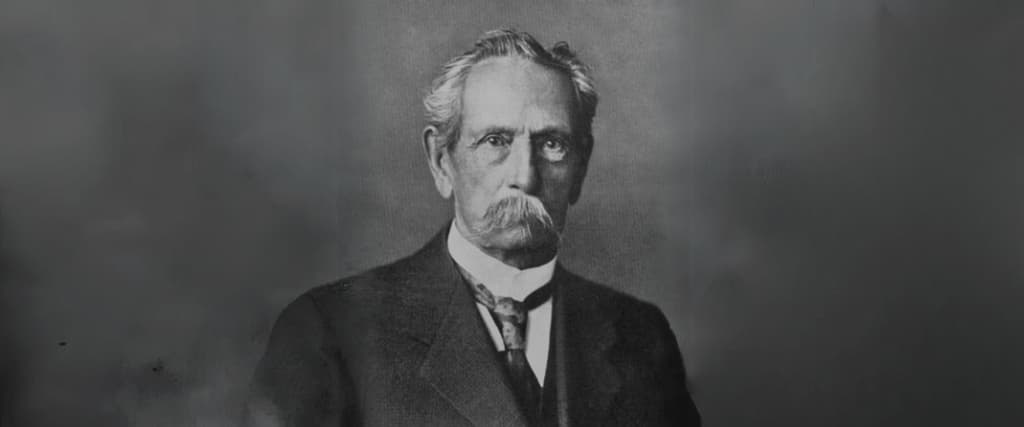The automobile is a technological marvel that has revolutionised the world in more ways than one.
It has allowed us to travel faster and more comfortably, transformed the way we do business, and connected people and places in previously unimaginable ways.
However, like all great inventions, the automobile had a humble beginning which many people aren’t aware of.
In this article, we will explore the history of the automobile, including who invented the first car, what it was like, and when it was made.
So, buckle up and make yourself comfortable. We are about to take a road trip down memory lane!
Who Invented the First Car?

The answer to this question is not as straightforward as you might think.
Essentially, the first car was not invented by a single person. Instead, it was the result of a long history of technological developments and innovations that dates to the mid to late 1700s.
Overall, many people contributed to the development of the first car, and the credit for its invention is shared by several inventors. Each of them developed various types of engines and propulsion systems.
One of the earliest pioneers in the development of the car was Nicolas Joseph Cugnot, a French military engineer. In 1769, he built a steam-powered vehicle that could move at a speed of about 3 km/h. Although it was not very practical, it was the first self-propelled vehicle that could carry passengers.
Another inventor who contributed to the development of the car was Richard Trevithick, a British engineer. In 1801, he built a steam-powered vehicle that was capable of carrying passengers. It was also the first vehicle to run on rails, which paved the way for the development of the modern railway.
In 1834, Thomas Davenport, an American inventor, built an electric motor that could power the small car. Although it was not very powerful, it was the first electric motor designed for practical use.
Enter Karl Benz

Karl Benz is often credited with inventing the first car.
A German engineer who was born in 1844 in Karlsruhe, Germany, Karl was interested in engineering from a young age and went on to study mechanical engineering at the Karlsruhe Institute of Technology. After completing his studies, he began working at a machine tool factory, where he developed his skills in engine design and mechanics.
In the 1880s, Karl Benz set out to create a new type of vehicle that would be powered by an internal combustion engine. His goal was to create a self-propelled vehicle that could be used for transportation, rather than relying on horses or other forms of animal power.
In 1885, after several years of experimentation and development, Benz completed his first automobile, which he called the Benz Patent-Motorwagen.
However, it’s worth noting that Benz wasn’t the only one working on the development of the car at the time. Gottlieb Daimler and Wilhelm Maybach, two German engineers, were also working on similar projects. In 1886, they built a four-wheeled vehicle that was powered by a gasoline engine. This vehicle, which they called the ‘Daimler Motorised Carriage’ was the first car to have four wheels and was more powerful than Benz’s vehicle.
What Was the First Car Like?

The first car, as we know it today, was a far cry from the sleek and sophisticated vehicles we see on the road today. It was a crude and primitive machine that had very little in common with modern cars.
Benz’s Patent Motorwagen was a three-wheeled vehicle that had a single-cylinder four-stroke engine mounted at the back. It had a top speed of 16 km/h and a range of about 80 km and was steered by a tiller. The driver and passenger sat on a bench seat that was mounted over the front axle. There was no windshield or roof, and the vehicle had no brakes. Instead, the driver had to rely on a handbrake to slow down the vehicle.
By contrast, the Daimler Motorised Carriage was a four-wheeled vehicle that was more sophisticated than Benz’s vehicle. It had a two-cylinder engine that was mounted under the seat, and it could reach a top speed of 18 km/h. It also had a steering wheel instead of a tiller and a rudimentary suspension system that consisted of leather straps.
Both vehicles were very basic and lacked many of the features that we take for granted in modern cars. They had no headlights, turn signals, or other safety features. There were no seat belts or airbags, and the steering was relatively difficult, making it challenging to handle. The engines were also noisy and produced a lot of smoke and fumes, which made them uncomfortable to ride in.
Despite their shortcomings, the first cars were seen as an incredible achievement. They represented a significant leap forward in transportation technology and paved the way for the development of the modern automobile.
How Did the First Cars Impact Society?
The invention of the car had a profound impact on society. Before the car, transportation was slow and cumbersome, and people relied on horses, carts, and trains to get around. The car changed all that, providing people with a fast, convenient, and flexible means of transportation.
One of the most significant impacts of the car was the way it transformed travel. It made it possible for people to travel long distances quickly and easily, allowing them to visit friends and family who lived far away. It also made it easier for people to move around for work or leisure, opening up new opportunities and experiences.
The car also had a significant impact on the economy. It created new industries and jobs, such as automobile manufacturing and automotive repair. It also made it easier for goods and services to be transported, boosting trade and commerce.
However, the invention of the car was not all good news, as it also began to have a significant impact on the environment. As more and more people began to use cars, pollution levels increased, and the air quality deteriorated. The dependence on fossil fuels also contributed to climate change, which is a significant global challenge today.
Despite these challenges though, the car remains an essential part of most people’s everyday lives. It has revolutionised transportation and has played a significant role in shaping the modern world.
Conclusion
Regardless of who you believe invented it, we can all agree the invention of the car was a remarkable achievement that changed the course of human history.
As a result of a long history of technological development, the first cars were basic and lacked many of the features that we take for granted in modern cars.
But while they were noisy, uncomfortable, and challenging to handle by today’s standards, if it wasn’t for the likes of Karl Benz and Gottlieb Daimler and Wilhelm Maybach, we wouldn’t be driving the vehicles we are today.


